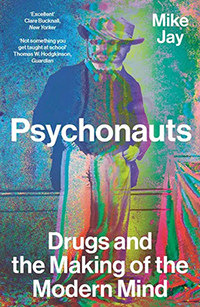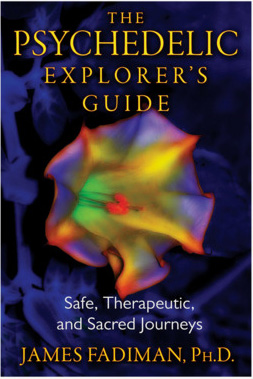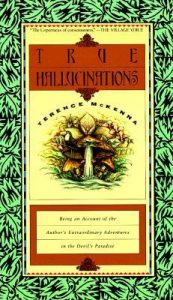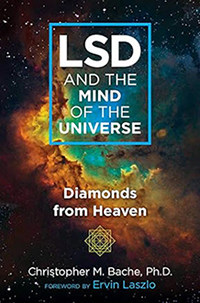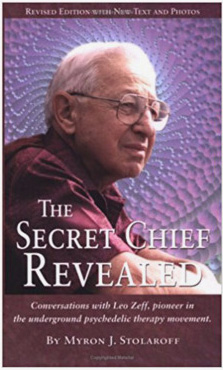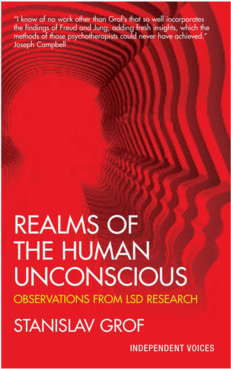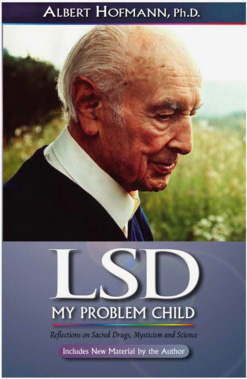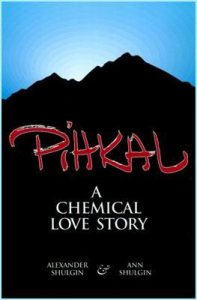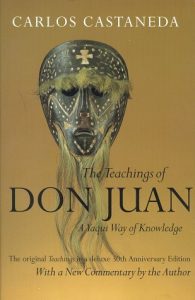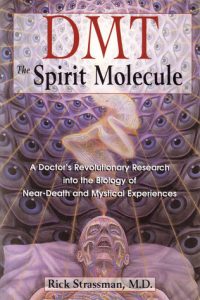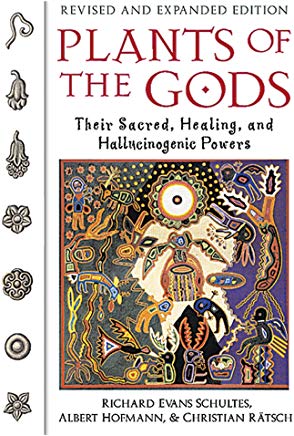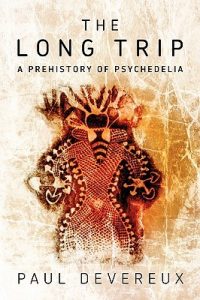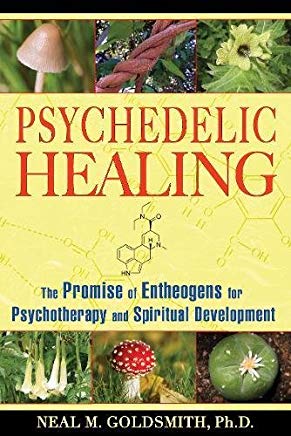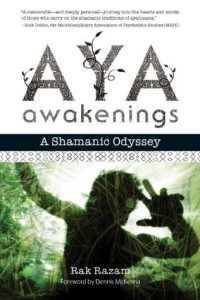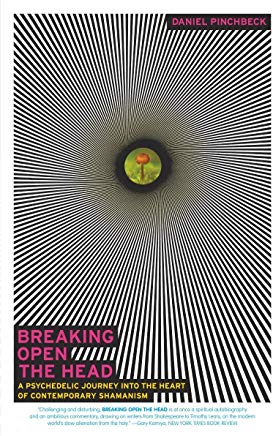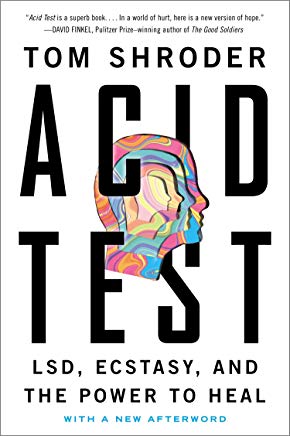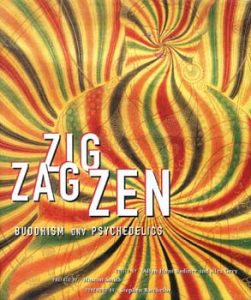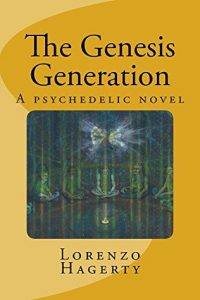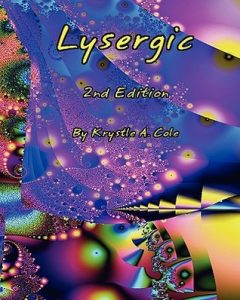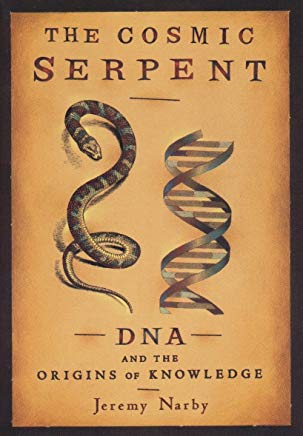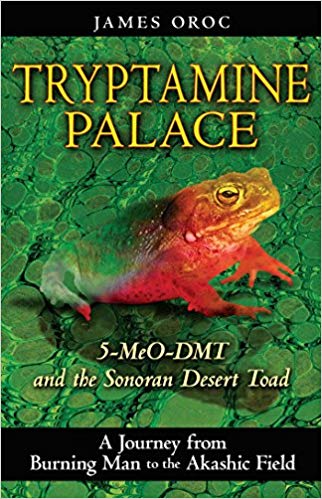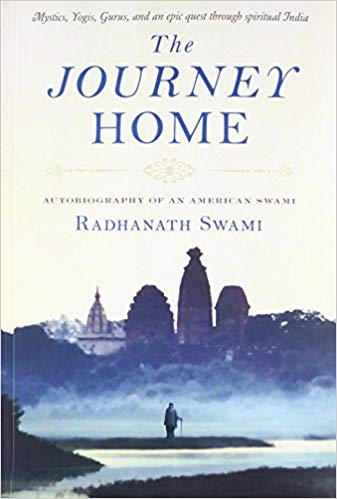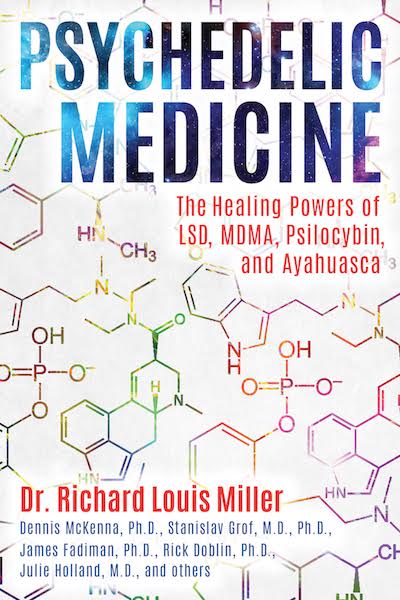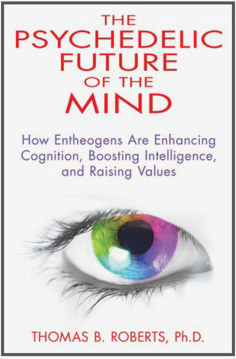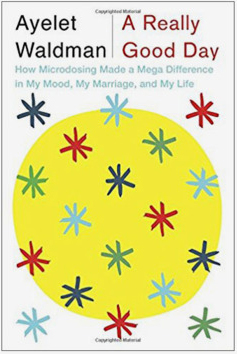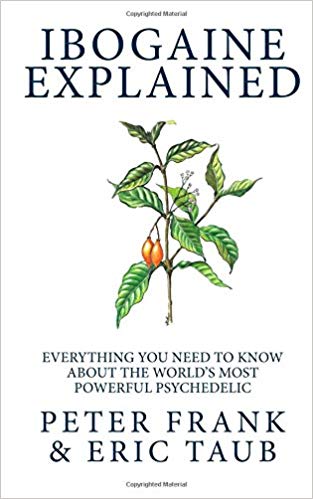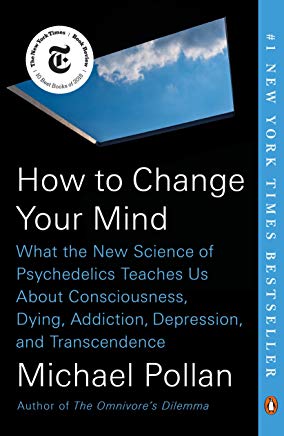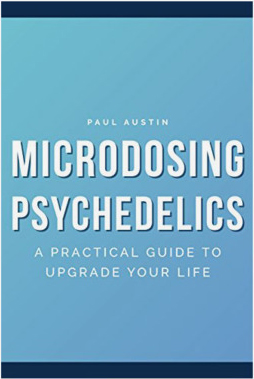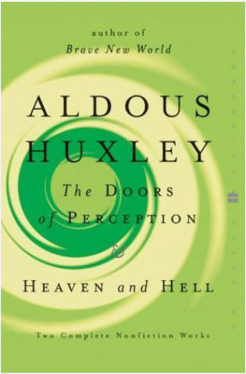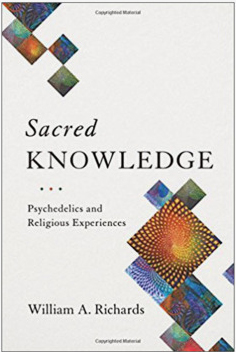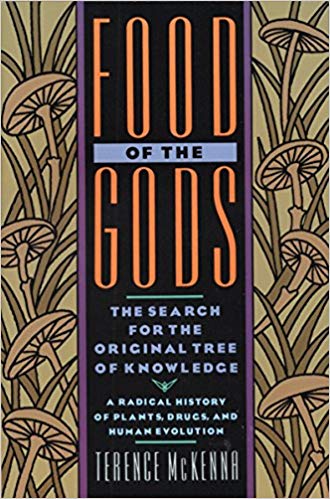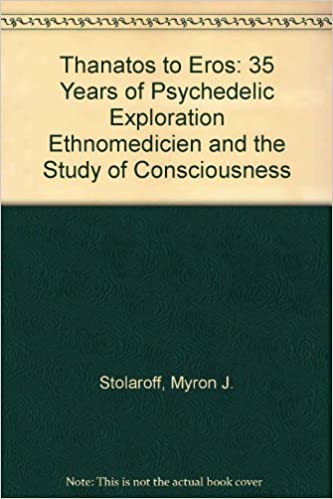Books On Psychedelics
Drugs and the Making of the Modern Mind.
Until the twentieth century, scientists investigating the effects of drugs on the mind did so by experimenting on themselves. Vivid descriptions of drug experiences sparked insights across the mind sciences, pharmacology, medicine, and philosophy. Accounts in journals and literary fiction inspired a fascinated public to make their own experiments—in scientific demonstrations, on exotic travels, at literary salons, and in occult rituals.
But after 1900 drugs were increasingly viewed as a social problem, and the long tradition of self-experimentation began to disappear.
From Sigmund Freud’s experiments with cocaine to William James’s epiphany on nitrous oxide, Mike Jay brilliantly recovers a lost intellectual tradition of drug-taking that fed the birth of psychology, the discovery of the unconscious, and the emergence of modernism. Today, as we embrace novel cognitive enhancers and psychedelics, the experiments of the original psychonauts reveal the deep influence of mind-altering drugs on Western science, philosophy, and culture.
James Fadiman, Ph.D.
Hands down, this is always the first book that I recommend to anyone who wants to know more about psychedelics. Even after absorbing a ton of information about psychedelics over the years, I feel like this book has many new things to teach me. It covers several topics of which I was previously unaware, such as the concept of sub-perceptual microdosing and the positive impact that listening to non-vocal music pieces during the beginning of a psychedelic experience can have on one’s overall journey. My intention when reading the book was to learn how to become a guide for others undergoing psychedelic experiences, and Fadiman’s advice for “trip sitters” is very concise, helpful, and wise. The book also has plenty of advice for those thinking of embarking on their own psychedelic voyages, like paying attention to components like set, setting, substance, sitter, session, and support. The Psychedelic Explorer’s Guide does a great job of dispelling some of the myths about psychedelics, offers a practical and positive itinerary for a successful experience, introduces several important people in this field, and does so in a way that is unbiased and helpful. In my opinion, this is a must-read for psychonauts and guides alike.
Terence McKenna
No list of psychedelic books would be complete without at least one of the bard Terence McKenna’s books. Although Food of the Gods: The Search for the Original Tree of Knowledge is McKenna’s best-known work, True Hallucinations is my favorite. After the death of his mother in 1971, Terence, his brother Dennis, and three friends found themselves in the Colombian Amazon in search of oo-koo-hé, a psychoactive plant concoction containing DMT. At Dennis’ insistence, the group found themselves involved in a psychedelic experiment with the goal of contacting the Logos. The experiment at La Chorrera involved the use of psilocybin mushrooms and a vocal technique which Dennis developed to attempt actual DNA alteration during a psychedelic experience. The experiment resulted in a shamanic initiation for the two brothers, with Terence communicating with a divine voice and Dennis undergoing a dramatic psychological breakdown of sorts. While the book The Invisible Landscape: Mind, Hallucinogens, and the I Ching goes into more detail about the experiment that occurred five years prior at La Chorrera, I found True Hallucinations to have benefited from twenty years of reflection. It is a more clearly-written and objective assessment of what happened to the Amazonian travelers, and certainly worth checking out.
Christopher Martin Bache
Journey alongside professor Bache as he touches the living intelligence of our universe–an intelligence that both embraced and crushed him–and demonstrates how direct experience of the divine can change your perspective on core issues in philosophy and religion. Chronicling his 73 sessions, the author reveals the spiral of death and rebirth that took him through the collective unconscious into the creative intelligence of the universe. Making a powerful case for the value of psychedelically induced spiritual experience, Bache shares his immersion in the fierce love and creative intent of the unified field of consciousness that underlies all physical existence. He describes the incalculable value of embracing the pain and suffering he encountered in his sessions and the challenges he faced integrating his experiences into his everyday life.
Pushing the boundaries of theory and practice, the author shows how psychedelic experience can take you beyond self-transformation into collective transformation, beyond the present into the future, revealing spirit and matter in perfect balance.
Myron J. Stolaroff
Myron J. Stolaroff wrote The Secret Chief Revealed in transcript form, based on conversations with Leo Zeff, an Oakland-based Jungian therapist who pioneered the use of LSD, ecstasy, and other psychoactive drugs in psychotherapy in the 1970s. Pollan says, “Zeff worked with psychedelics in his practice both before and after they were banned, when he moved underground. He claims to have ‘tripped’ — his locution — more than 3,000 people and trained 150 underground therapists before his death in 1988.” Doblin also recommends The Secret Chief, calling Zeff “the pioneering psychedelic therapist, whose identity was first revealed in this book. It’s as interesting from a historical perspective as it is useful for therapists and others interested in learning about the practice of psychotherapy.”
John C. Lilly
John C. Lilly is famous for inventing the floatation tank and for being a member of counterculture scientists and thinkers who shaped the field, becoming known for being a psychonaut exploring consciousness and altered states.
Lilly framed this book with the metaphor that our minds are computers, running programs that have purposely or accidentally been coded into us, perhaps with great precision, perhaps carelessly. He believed the psychedelic experience gives us the chance to project our minds in front of us and assume the role of “metaprogrammer”, thus gaining the ability to recode old, faulty programs that are causing harm or no longer useful. This book is a favorite of the pragmatic, tech-minded neuro-hackers out there.
Dr. Stanislav Grof
Grof is one of the most esteemed psychedelics researchers out there — published this book in 1979. It’s a collection of his firsthand observations on the effects of LSD in his patients and research subjects. “Grof has more experience with the therapeutic use of psychedelic drugs than anyone alive,” Shroder says. Doblin recommends Grof as well: “Stan Grof’s vast insights into the subconscious, drawn from the thousands of LSD-assisted psychotherapy sessions he conducted, revolutionized the field of psychology and form the basis of most contemporary psychedelic therapy,” he says. Many of Grof’s patients have lived through unspeakable trauma — rape, abuse, and war — and he chronicles their treatment in heartbreaking detail. Unlike The Secret Chief, which looks at the world of Zeff and his practices, Grof’s book focuses more on his patients’ stories.
Albesrt Hofmann
Reflecting on Sacred Drugs, Mysticism and Science. This book chronicles the discovery of LSD by the man who discovered it: Albert Hofmann. “LSD discoverer Albert Hofmann was not just a chemist, but a true visionary who recognized the potential that LSD has to shed light on the many realms of the human unconscious,” Doblin says of the Swiss scientist, who took acid hundreds of times during his mid-century career, regarding the drug as a dangerous but still revelatory tool. This book is Hofmann’s account of his incredible life and work, “from his discovery of LSD’s psychoactive properties in 1943, to the inception of psychiatric research using LSD to facilitate psychotherapy. I can’t recommend it enough.”
Dennis McKenna
While we’re on the topic of the McKenna brothers, it’s worth highlighting Dennis McKenna’s account of the McKenna Brothers’ stories, The Brotherhood of the Screaming Abyss: My Life with Terence McKenna. Although most people are familiar with Terence’s lectures, his gift of gab had a tendency to anesthetize his listeners, causing some to blindly place faith in his wild ideas. Dennis’ attention to detail and his ability to remain honest in his description of the brothers’ lives (he is often quite blunt!) makes for an extremely interesting read. According to Dennis, there are several things Terence presented to his audience that may have been only partial truths. The stories contained in the book and the list of suggested reading material at the end make for an excellent book that everyone interested in the history of psychedelics and Terence McKenna should read.
Alexander Shulgin & Ann Shulgin
Written by Alexander “Sasha” Shulgin and his wife Ann Shulgin, “PiHKAL” is an acronym for “Phenethylamines I Have Known And Loved.” The book is broken up into two distinct sections. The first is a compelling narrative that shares how the couple fell in love, their interactions with friends and family, and their exploration of various phenethylamine compounds. The latter part of the book is a chemist’s dream-come-true, complete with notes on indole rings and molecule construction. Many people refer to this part of the book as the “Recipes” section, as it can be used to synthesize a wide assortment of phenethylamine compounds (not that we recommend this.) If you like this book, you may also want to check out its sequel, TiHKAL: The Continuation as well.
Carlos Castañeda
This was one of the first books that I read on the topic of psychedelics, and at the time it blew my mind wide open. Carlos Castañeda was an American anthropologist and author who wrote a series of books about his experiences with traditional Mesoamerican Shamanism. This is the first in the series, and it offers a first-person account of Castaneda’s apprenticeship with a Yaqui shaman named Don Juan Matus. The two met in 1960 while Castaneda was seeking knowledge about peyote, and over the course of the book he experiences Mescalito (peyote), Datura inoxia (Jimson weed), and Humito (a smoke-mixture comprised of various herbs and Psilocybe mexicana). He claimed that these plants took him to a realm that he described as “non-ordinary reality”, which he defined as being every bit as real as our ordinary reality. Many people consider Castaneda to be a fraud and advise against reading his works, but I find them to be valuable as long as they are approached with a healthy dose of skepticism.
Rick Strassman, MD
Dimethyltryptamine (DMT) is a powerful psychedelic compound naturally produced by the human brain and also found in many plants and animals. After a 40-year lull during which there was no government-approved psychedelic research being conducted, Rick Strassman conducted a series of biomedical assays on DMT during the early 1990’s at the University of New Mexico. One of the things that may surprise you about this book is its impressive writing quality. Even though Strassman has a scientific background, he also has a remarkable ability to turn a phrase and keep his readers’ interest. Among other topics such as the history of psychedelics and Strassman’s career, the book primarily focuses on the experiences of the volunteers during their participation in the DMT studies. As a practicing Buddhist, Strassman does incorporate a bit of spirituality into the book. However, it doesn’t take the front seat, so there’s no need to avoid this one if you’re not into that. Overall, this is an insightful look at the first studies that helped spark the recent psychedelic renaissance.
Richard Evans Schultes, Albert Hofmann and Christian Rätsch
Plants of the Gods: Their Sacred, Healing, and Hallucinogenic Powers is the definitive photographic encyclopedia of psychedelic plants, compiled by ethnobotanist Richard Evans Schultes, the Swiss scientist and creator of LSD Albert Hofmann, and world-renowned anthropologist and ethnopharmacologist Christian Rätsch. It features rare color photographs of psychedelic plants, explores their use in shamanic rituals, and details helpful information regarding various aspects of each plant. The authors analyze the biochemistry of the plants as well as the sacred contexts in which they are used. This book is visually impressive while providing an investigation into a variety of unique plants, many of which are uncommon or rare.
Paul Devereux
Focusing on the extensive history of human usage of psychedelic substances, this book asserts that—contrary to mainstream opinion—we have been embarking on psychedelic journeys for much longer than the 1960’s. Devereux offers evidence showing that psychedelics have been used for millennia in every habitable part of the world for ritualistic and spiritual purposes. In fact, our modern society is quite unique in its refusal to accept these substances and integrate them into our civilization. This is not only a unique exploration into less-explored psychedelic territory, but it is thoroughly researched and well-written. As such, it truly deserves our community’s attention.
Neal M. Goldsmith, Ph.D.
Neal Goldsmith is a psychotherapist and counselor with a private practice in New York who takes a psychospiritual approach to personal development, healing, and change. This book explores his entertaining personal history with psychedelics and focuses on the potential for true healing to occur as a result of a psychedelic practice. The introduction proposes questions such as, “Can psychedelic therapy trigger immediate transformative change in novel areas?”, “How should psychedelics be rescheduled?”, and “Can psychedelics provide lasting change?” Each question is examined later on in the book, as Goldsmith explores the plausibility of fundamental personality change while giving a detailed history of psychedelic research, providing lessons gained by psychedelic therapy, and discussing implications for the future. He suggests ways that we can work to change drug laws, offers personal experiences of difficult experiences at Burning Man, and provides guidelines for safe and effective psychedelic journeys. If you or someone you know has an area of life that needs healing, this could help tremendously.
Rak Razam
Rak Razam, a self-described experiential journalist, explores the mystery and ritual surrounding ayahuasca in this book. While in South America he trains with many different indigenous ayahuasqueros, each of which has a unique way of approaching the medicine. Some of the common threads are icaros (the songs of the vine), brujeria (evil and threatening forces that want to harm ayahuasqueros and their clients), and mapacho (a specific type of tobacco used during ceremonies to cleanse and purify the ritual space and spirits inside). As Razam undergoes one ceremony after another, The Vine of Souls seems to lead him deeper into the Amazon. Each experience is different, but somehow all are connected to the web of life. Overall, Aya Awakenings: A Shamanic Odyssey is an excellent account of 21st century shamanism in the Amazon.
Daniel Pinchbeck
In this book, Daniel Pinchbeck, American author and co-founder of the web magazine Reality Sandwich and the transformative online community Evolver.net, mixes his personal history with a fresh analysis of the spiritual sacraments used by tribal cultures around the world. One of the engaging personal tales he shares focuses on a thirty-hour iboga ceremony with the Bwiti in Gabon, where the participants have their heads “broken open” by insufflating a potentially fatal dose of iboga. Pinchbeck also explores the merging of modern Western consciousness with psychedelics, taking a look at influential thinkers like Allen Ginsberg, Antonin Artaud, and Terence McKenna. This is a fascinating look at psychedelia, and the author brings us along for the ride in his personal transformation from a jaded Manhattan journalist to shamanic initiate and grateful citizen of the cosmos.
Tom Shroder
Tom Shroder is an editor at The Washington Post Magazine, an acclaimed journalist, and the author of Old Souls: Compelling Evidence from Children Who Remember Past Lives. His book Acid Test: LSD, Ecstasy and the Power to Heal weaves several non-fiction narratives together into a captivating story that includes an in-depth history of psychedelic research, explores various characters in the psychedelic community, and describes the current state of psychedelic research (with a focus on MDMA-assisted psychotherapeutic treatment of Post-Traumatic Stress Disorder). One of the most compelling stories in the book is that of former Marine Nicholas Blackston, who witnessed horrors in war that most of us cannot even fathom. When he returned stateside he was internally tortured by recurring nightmares, uncontrollable flashback hallucinations, a temper with an increasingly short fuse, and physical pain from shrapnel wounds. Blackston was fortunate to seek and receive help from MDMA-assisted psychotherapy and has experienced a significant diminishing of his PTSD symptoms. Shroder uses this man’s experience to argue that our veterans deserve the right to receive reliable and effective treatment, rather than the dangerous and fruitless hodgepodge of pharmaceutical drugs that they typically receive. MDMA is on track to be legalized for therapy by 2021, and books like this one go a long way toward supporting that effort.
Edited by Allan Badiner and Alex Grey
This is a compilation of articles and interviews written and conducted by several respected luminaries in both the Buddhist and psychedelic communities. The pieces explore the overlap between Buddhism and psychedelics, together conducting a dialogue concerning whether psychedelics have a place in sincere Buddhist practice, and vice-versa. Exploring topics such as The Tibetan Book of the Dead, spiritually-influenced artwork, the potential of psychedelics in spiritual traditions, psychoactivism, and the use of cannabis in harm reduction, this book is an extremely well-written and edited exploration of psychedelics in the context of Buddhist practice.
Lorenzo Hagerty
Originally published in audiobook form, The Genesis Generation: A Psychedelic Novel is a semi-fictional autobiography of Psychedelic Salon host Lorenzo Hagerty’s emergence into the psychedelic community. The protagonist of the story, William, is stuck between two worlds: the world of corporate America and the psychedelic community. As the events of the narrative unfold, the reader is shown his transformation from a 29-year-old “yuppie-geek” into a valuable member of the psychedelic community. The characters in the novel visit places such as Palenque, Mexico, Texas, Amsterdam, Vietnam, and Burning Man before reaching an unexpected climax. This is the only fictional book on this list, and for good reason—it chronicles the tale of one of the most influential psychedelic luminaries of our time.
Note: Regarding the process of acquiring this book, the Kindle edition is available by clicking the above link, and Lorenzo has been known to send paperback copies of the book (which are no longer in print) individually to fans. To get in touch with him and ask for a copy, you can go to psychedelicsalon.com and click the “Contact” link in the navigational bar at the top of the site.
Krystle Cole
Rounding out the list is NeuroSoup founder Krystle Cole’s book Lysergic, which details her involvement with the LSD manufacturers for the Brotherhood of Eternal Love back in the late 1990’s and early 2000’s. Starting out as a small town girl from Kansas, Cole met Todd Skinner, one of the chemists involved with manufacturing LSD, at a strip club where she was temporarily employed. She had no experience with psychedelics when he insisted that she try MDMA, which turned out to be a life-changing journey for her and led her onto a psychedelic path. In the book, she sheds light on many of her personal experiences with a wide array of psychedelic compounds and explains the complicated and confusing legal cases that this group of people were wrapped up in during that time. It’s a one-of-a-kind perspective on the topic, and definitely worth checking out.
The Psychedelic Explorer’s Guide – James Fadiman
In the Realm of Hungry Ghosts: Close Encounters with Addiction – Gabor Mate
Storming Heaven: LSD and the American Dream – Jay Stevens
Psychedelic Psychiatry: LSD from clinic to campus – Erika Dyck
The Natural Mind: A Revolutionary Approach to the Drug Problem – Andrew Weil
Acid Hype: American News Media and the Psychedelic Experience – Stephen Siff
Acid Dreams: The complete social history of LSD – Martin A. Lee and Bruce Shlain
Drugs: Without the Hot Air – David Nutt
Psychoactive Sacramentals: Essays on Entheogens and Religion – Thomas B. Roberts, ed.
LSD, My Problem Child – Albert Hofmann
Sacred Knowledge: Psychedelics and Religious Experiences — William A. Richards
Psilocybin Mushrooms of the World: An Identification Guide – Paul Stamets
Mycelium Running: How Mushrooms Can Help Save the World – Paul Stamets
A Really Good Day: How Microdosing Made a Mega Difference in My Mood, My Marriage, and My Life – Ayelet Waldman
The Craving Mind: From Cigarettes to Smartphones to Love—Why We Get Hooked and How We Can Break Bad Habits – Judson Brewer
Neuropsychedelia: The Revival of Hallucinogen Research Since the Decade of the Brain – Nicolas Langlitz
The Harvard Psychedelic Club: How Timothy Leary, Ram Dass, Huston Smith, and Andrew Weil Killed the Fifties and Ushered in a New Age for America – Don Lattin
One River: Explorations and Discoveries in the Amazon Rain Forest -Wade Davis
Mushrooms, Russia, and History [PDF] -Valentina Pavlona Wasson and R. Gordon Wasson
Seeking the Magic Mushroom – A reproduction of the LIFE magazine article by Gordon Wasson
The Strange Case of the Harvard Drug Scandal – A reproduction of Andrew Weil’s 1963 Look magazine article
Find a great collention of psychedelic bibliography at Synergetic Press
Taking psychedelics can be like air travel: people do it all the time, it’s usually fine, but when it’s not fine, it’s sometimes very bad. We’ve been there. And that’s where an experienced GUIDE can make the difference in the outcome. I’m available by phone if you or someone you know wants to ask questions of ANY nature. Use this link to schedule a call HERE.
